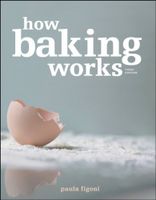Advertisement
Maturing Agents and Dough Conditioners
Appears in
By Paula Figoni
Published 2003
Recall that maturing agents are generally added to flour to affect baking qualities. Maturing agents do this partly or exclusively through their effects on gluten. Some maturing agents, primarily chlorine gas, weaken gluten. (Don’t forget that chlorine also whitens carotenoids and changes starch granules so that they swell more easily.) Others, such as ascorbic acid and potassium bromate, strengthen gluten.
The main role of dough conditioners is to increase gluten strength, contributing to chemical dough development. This is especially important when dough undergoes extreme conditions, as when it is run through high-speed commercial equipment. Recall from Chapter 5 that dough conditioners contain a mix of ingredients. The main ingredients in dough conditioners are maturing agents that strengthen, but other ingredients important for strengthening gluten include emulsifiers as well as salts and acids that adjust water hardness and pH. The amount of dough conditioner to use varies with the brand, but it is typically 0.2–0.5 percent of the weight of the flour.

